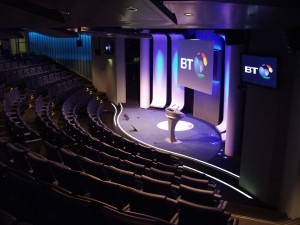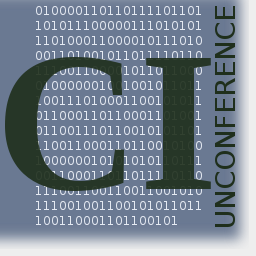[After too long of a posting sabbatical I’m very glad to have a good friend, Daniel Lewis, come to the rescue with this guest post as founder of the forthcoming Computational Intelligence Unconference UK 2014. Not just for computer scientists and cryptogeeks, but futurists of all kinds should come along and join in the varied and important conversation. See you there!]
There are different types of research and development areas required
to implement any great idea.
The first is the visionary,
The second is theoretical,
The third is political,
The forth is technological.
In the first case we have the visionary idea of the technological singularity, which (to summarise in a very basic manner) is a temporal point when machine-to-human communication becomes indistinguishable from human-to-human communication. This usually indicates a time when machines become “as intelligent” (or “more intelligent”) than humans.
In the second case, we have the theoretical, which itself could be artificially divided into two, the philosophical and the mathematical. The philosophy of the technological singularity regards both the nature of “intelligence”, the strong and weak notions of “indistinguishability” and the areas of rationality and irrationality. The mathematics of technological singularity regards various concepts of set theory, probability theory, self-referencing functions, proof systems, and much more.
In the third case, we have the political. This takes the ideas of philosophical morality and ethics and attempts to establish frameworks for governance and authority. Here we establish policy, regulation and so on. If we do have evolving computational intelligence, then how can we stop it becoming an existential risk to humans and the rest of the natural (and even mechanical) world.
In the final case, we have the technological. This is one area where the relationship between research and development is very clear. The theoretical, through various processes, is manifested, it becomes real. The technology of the technological singularity, is where we put the vision, the philosophical theories, the mathematical theories, the policies, into action. We begin to see the results. Which are then fed into the vision, the theoretical and the political, for further cycles of research and development.
 These four areas of research and development, which I have artificially separated, along with the topic of computational intelligence is the raison d’etre for the Computational Intelligence Unconference (also known as CI Unconference). Our first CI Unconference will be on the 26th July 2014, at the BT Centre in London, England.
These four areas of research and development, which I have artificially separated, along with the topic of computational intelligence is the raison d’etre for the Computational Intelligence Unconference (also known as CI Unconference). Our first CI Unconference will be on the 26th July 2014, at the BT Centre in London, England.
The tickets are free, it is volunteer-run and an attendee-empowered event. We shall have talks, demonstrations, exhibits, and discussions. It is for all the people involved in the visionary, theoretical, political and technological aspects of future machine intelligence. I would like to invite the reader to visit the website for the event, and if you can make it to the event, then please get yourself a free ticket.
For more information on talks and sessions, and to register to attend, visit:
http://ciunconference.org/uk/2014/
Thank you for reading, and I look forward to seeing you there.





